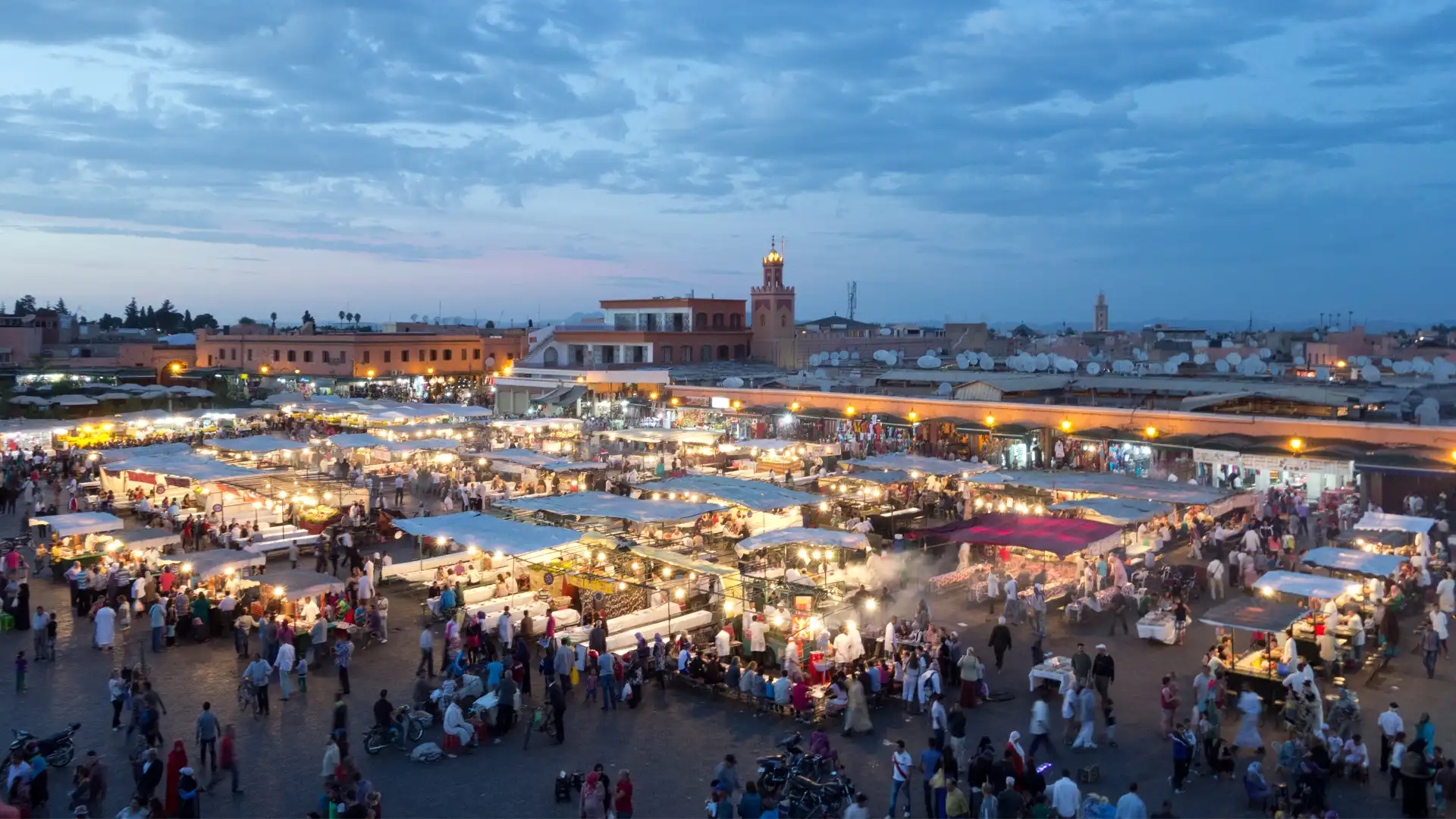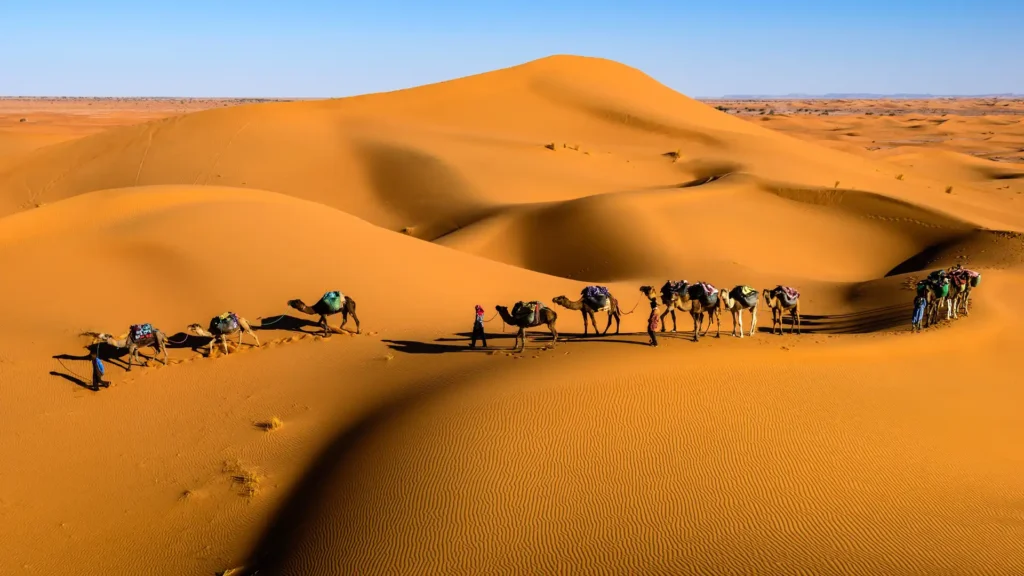Morocco, a land of enchantment and diverse landscapes, beckons you to explore its captivating beauty. Imagine wandering through bustling medinas, where the aroma of exotic spices fills the air, and vibrant market stalls display a kaleidoscope of colours. As you navigate the narrow streets, you'll encounter friendly locals who welcome you with warm smiles and open hearts.
In the heart of Marrakech, the iconic Jardin Majorelle offers a tranquil escape from the city's hustle and bustle. Stroll through its lush gardens, admiring the cobalt-blue buildings and exotic flora that painter Jacques Majorelle lovingly cultivated.
Venturing into the Sahara Desert, you'll embark on a desert safari, riding a camel across rolling dunes that seem to stretch endlessly. As the sun sets over the desert, the sky transforms into a breathtaking tapestry of hues, casting a magical spell upon the vast landscape.
Morocco's cuisine is a delightful fusion of flavours and influences. Savor the aromatic tagines, couscous, and freshly baked bread served in local eateries. Don't forget to sip on a cup of mint tea, a traditional gesture of hospitality.
For history enthusiasts, a visit to Fes is a journey back in time. The medina of Fes el-Bali, a UNESCO World Heritage site, is a labyrinthine maze of narrow alleys, ancient mosques, and bustling souks. It's like stepping into a medieval world frozen in time.
Morocco's coastal towns, like Essaouira, offer a refreshing change of scenery. Feel the gentle sea breeze as you wander along the fortified walls, exploring artisan shops and seafood markets. The crashing waves and vibrant blue boats add a sense of tranquillity to this coastal gem.
So, if you're seeking an adventure that blends history, culture, and natural beauty, Morocco invites you to immerse yourself in its rich tapestry of experiences. It's a journey that will leave you with lasting memories and a deep appreciation for this captivating country.

The best time to visit Morocco largely depends on your preferences and the experiences you seek. Spring (March to May) is often considered an ideal time as the weather is mild, and the landscape bursts with vibrant blooms, making it perfect for outdoor exploration.
The bustling markets and historic sites are less crowded during this period, allowing for a more intimate experience.
Another excellent time to visit is in the autumn months of September to November. The scorching summer heat begins to wane, and it's an excellent time for hiking in the Atlas Mountains or exploring the desert. Plus, the annual date harvest in October adds a unique cultural dimension to your visit.
If you're interested in Moroccan festivals and cultural events, consider planning your trip during Ramadan, which varies each year according to the Islamic lunar calendar.
While it may require some adjustments to dining schedules, it offers a chance to witness the special atmosphere of fasting and evening feasts. Additionally, the vibrant celebrations of Eid al-Fitr at the end of Ramadan are a sight to behold, with colourful parades and festivities.
Currency: The official currency in Morocco is the Moroccan Dirham (MAD). You'll find ATMs widely available in cities and towns, making it convenient to withdraw cash.
Language: Arabic and Berber are the official languages, while French is commonly used in business and tourism. English is also spoken in many tourist areas.
Credit Cards and ATMs: Major credit cards like Visa and MasterCard are accepted in larger establishments, but it's advisable to carry some cash, especially in smaller towns. ATMs are accessible in urban areas for cash withdrawals.
Visa Requirements: Depending on your nationality, you may need a visa to enter Morocco. Check the requirements beforehand and ensure your passport has at least six months of validity.
Plugs: Morocco uses the European standard plug with two round pins. If your devices have a different plug type, consider bringing a universal adapter.
Safety: Morocco is generally a safe destination for tourists. Exercise usual precautions, such as safeguarding your belongings and being cautious in crowded areas. In remote regions, it's wise to travel with a guide.
